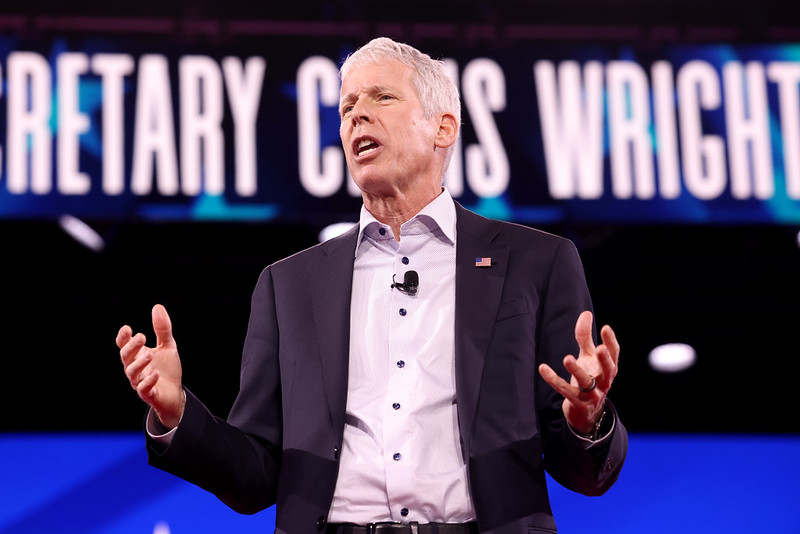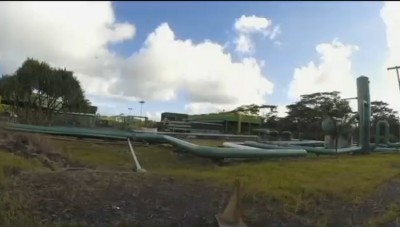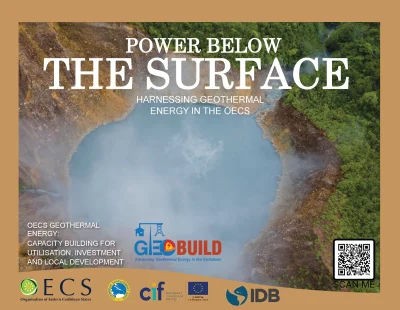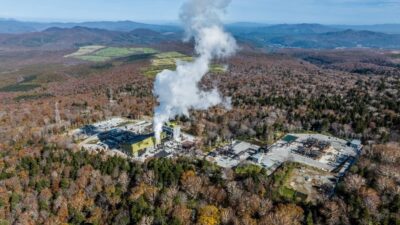U.S. Energy Secretary Chris Wright endorses geothermal expansion
U.S. Energy Secretary Chris Wright calls for expanding geothermal energy, citing its potential to enhance energy security, support AI, and stabilize electricity prices.
At a recently held event in the Geothermal House series by ProjectInnerspace, U.S. Secretary of Energy Chris Wright has voiced strong support for geothermal energy, highlighting its potential to provide clean, on-demand power and boost economic growth, as reported by The Hill. Speaking at the MAGMA (Making America Geothermal: Modern Advances) event by ProjectInnerspace, Wright emphasized geothermal’s role in strengthening national energy security, supporting AI and manufacturing, and stabilizing electricity prices. The event was held in collaboration with CRES, a Citizens for Responsible Energy Solutions (CRES) a non-profit organization to educate Republican policymakers and the public.
His remarks come as the geothermal industry faces uncertainty over continued government support. Wright’s endorsement is seen as a major boost for geothermal advocates seeking policy and investment backing.
Political Support for Geothermal Energy
Wright’s comments reflect a growing bipartisan interest in geothermal as a reliable, 24/7 energy source. At MAGMA, Representative Randy Weber (R-TX) highlighted geothermal’s advantage over wind and solar, calling it “something we can count on year in, year out.”
Geothermal’s ability to provide round-the-clock, pollution-free power has made it increasingly appealing to industries like data centers and military operations.
Oil and Gas Industry Synergies
The oil and gas sector is playing a key role in geothermal’s development. Technologies like fracking and horizontal drilling, which transformed U.S. shale production, are now being adapted to extract underground heat.
Many geothermal startups are led by oil and gas veterans, including Wright himself, whose company Liberty Energy has invested millions in geothermal ventures. Major industry players like Devon Energy and Baker Hughes have also launched in-house geothermal divisions, signaling growing fossil fuel industry interest.
Challenges to Scaling Geothermal
Despite its potential, the geothermal sector faces regulatory and financial barriers:
- Permitting Delays – Geothermal well approvals on federal land take twice as long as oil and gas wells.
- Funding Gaps – Many startups struggle to secure investment to scale up, despite strong demand for geothermal power.
Wright addressed these challenges, stating, “We need to make it easier to get regulatory approvals, easier to do innovations, easier to take that next step.”
The Future of Geothermal Energy
A 2021 University of Texas study found that if oil and gas drilling capacity were fully leveraged, geothermal could supply up to 80% of global energy demand by mid-century. However, unlocking this potential requires policy reform, infrastructure investment, and workforce expansion.
Wright closed his remarks with a call to action: “We’ve got to put capital to work. Let’s turn underground heat into a resource.”
With political backing and advancing technology, geothermal energy is poised to become a key player in the U.S. energy transition.
Secretary Wright has a background in oil & gas as the former CEO of Liberty Energy, which – under his leadership – had invested USD 10 million in geothermal startup Fervo Energy.
Wider geothermal interest and optimism
Overall, there is an increased interest in geothermal shown by various legislative initiatives e.g. in New Mexico, Hawaii, and others.
In discussions with industry, ThinkGeoEnergy learned that there is a careful optimism for some faster and easier permitting. Developers clearly are seeing this as an opportunity to bring concrete development efforts on the way to put drilling rigs to work. At the same time, the dynamic situation on tariffs, e.g. on steel and others could be seen as challenging on the cost structure of projects and investment decisions.



















